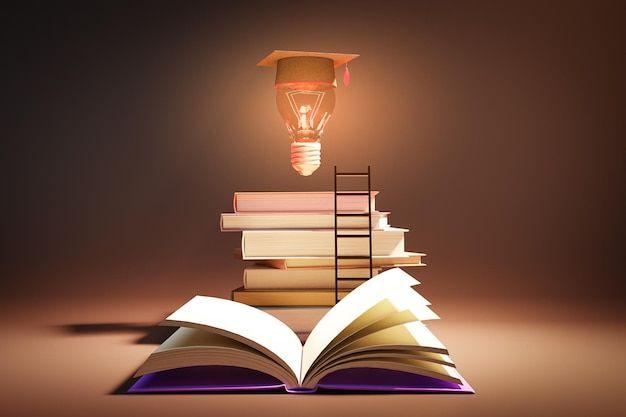
Not too long ago, 17-year-old Sadia had to discontinue her education, as the nearest school was a long walk from her village in Balochistan’s central Khuzdar district. In 2023, she was able to resume her education, after a school specifically for out-of-school children opened in her village.
Later the same year, Sadia travelled all the way from her village in Khuzdar to Lahore to be a participant at the Lahore Science Mela (LSM), a festival that was first held in 2017. There, Sadia displayed not just her curiosity, but also a strong grasp of biology, using a scientific model of the human heart to explain to other children how it works.
Sadia had the good fortune to not only return to school, but to also pursue and nurture her love, in this case biology. But many others might not get such a second chance. At least one in three children of school-going age in Pakistan end up dropping out.
A report published last year by Islamabad-headquartered Pak Alliance for Maths and Science, The Missing Third of Pakistan, says that a staggering 25.3 million children between the ages of five and 16 were out-of-school in Pakistan, which is 36 percent of the country’s school-age population.
Most Pakistani students miss out on the joyous revelations the hard sciences have to offer, often due to an education system that is besotted with rote learning. A few initiatives are hoping to change that…
Compounding the problem, not just for science but other subjects as well, is how rote learning is often the modus operandi across public and private schools. A lack of science educators is another issue that has not been addressed to date.
BRASS TACKS
Dr Sabieh Anwar, who is a professor of physics at the Lahore University of Managements Sciences (LUMS), says that science is considered boring, opaque and dry because of how it is taught. “Many of our educational institutions approach it didactically, emphasising rote learning and memorisation,” he tells Eos. “This stifles creativity, observation and inquiry,” he adds.
Dr Anwar is well acquainted with the wonders of science and how fascinating it can be for the young, inquisitive mind, thanks to his late father, who was also a scientist. The late Dr Saadat Anwar Siddiqi had also set up the Khwarizmi Science Society (KSS) — named after the famous Persian polymath — in 1995. Since then, it has grown into a successful grassroots-level initiative to popularise science.
The annual science festival is one of the events organised by the KSS. The society has also organised other mass-level interventions, including a festival on astronomy.
Barring the Covid years, the LSM has become an annual affair since 2017, attracting up to 100,000 people during the two days that the festival takes place, usually over the last weekend of October. Organisers say the visitors are split evenly between children and adults.
At the event in 2023, the exhibitors included 22 universities and 33 schools, as well as 62 other national and international institutions and start-ups, from across Pakistan and a few abroad. The list of participating schools was much longer, with visiting students getting a flavour of everything from quadratic equations to cosmic wonders, astronomy and microscopy, understanding the origins of Lahore’s smog to uncovering what lays in the earth beneath our feet or how light travels.
“To me, scientific knowledge is the means to self-enlightenment, the key to liberating the mind and is a great societal equaliser, too,” says Dr Anwar. “It is fundamentally the way to material progress and must be exciting, lively and exploratory,” he adds.
A team of volunteers helps set up a demonstration of molecular structure a day before the mela in 2023
LIGHTING THE SPARK
A question mark still hovers over the penetration of science education among the masses. A child from an affluent background can have access to global competitions, including those that come with a huge price tag, but can a child from a government school in rural Punjab have the same opportunity?
A school having barely enough to manage its payroll is unlikely to have a science or computer laboratory. This disparity in access — and not just in personnel and resources — creates a dichotomy that policymakers can address with the aid of scientists and educators.
Until that happens, Dr Anwar’s annual festival will continue to bring together inquisitive young minds, offering them a peek into a fascinating world of predictable outcomes and infinite possibilities; a journey of complexity of design and simplicity of logic.
For the young Dr Anwar, the festival is also an extension of his father’s vision of making science accessible and understandable to children across Pakistan, without distinction on the basis of gender and class.
One child to benefit greatly from the intervention is Aima Ahmed, who was only nine years old when she first attended the festival in 2017. After exploring the multiple exhibits and demonstrations at the event, she enrolled in a robotics boot camp and took programming courses.
Since then, Aima has become a proficient creator and problem solver and has been a regular at the science festival, including as a volunteer. She also conducts free demonstrations and teaches robotics to children in her community, hoping to ignite their passions, just as it happened with her. She has also exhibited the many models and robots she has engineered at various festivals and even organised a competition to solve the Rubik’s Cube.
Students taking part in a maths challenge at the festival in 2023
BACK TO CLASS
Dr Muhammad Hamid Zaman, a professor of biomedical engineering, international health and medicine at Boston University, drafted the white paper for the LSM. He says that there must be a concentrated effort to bring policymakers and academics together to bring excitement to learning in the classroom.
“We need to excite the teachers, train them so there is a domino effect to accelerate science education in Pakistan,” he tells Eos. “As of now, science is not considered joyful — kids are not curious enough to inquire and be excited to innovate. We must work hand in hand with teachers, ministries etc to bring change,” he continues.
LSM is part of a concentrated effort to make science education a process of imagination combined with rigour, one that goes beyond static models and brings all sciences to life.
Abdul Rauf set up the Pakistan Science Club (PSC) in 2008 with that aim. He has been working to inspire a lifelong interest in science, maths and technology by engaging diverse communities through interactive and innovative programmes.
Rauf’s not-for-profit science society organises different activities, including summer camps, science fairs and competitions at the school, college and university levels. He has even set up a research centre that allows students to work on their ideas and research, and develop innovative technologies using local resources.
PSC and LSM are merely two such endeavours that are serving as a catalyst to ignite interest in the sciences and bring inquisitive children to one platform.
But, as Dr Anwar points out, the change will come if the day-to-day interaction is changed. “The joy of science is to be experienced on a daily basis by the child through the teacher.”


